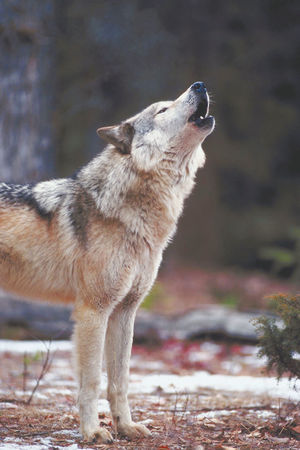
It is Christmas for the Wolves in Washington!!!!
Federal agents can’t kill any more wolves in Washington — for now.
U.S. District Court Judge Robert J. Bryan for the Western District in Tacomaruled last week that Wildlife Services did not take the “hard look” federal law requires at the ecological and cumulative impact of killing wolves in Washington.
Bryan found that killing wolves — a protected species — to reduce predation on livestock is not only highly controversial, but highly uncertain to work as intended, given the ongoing scientific dispute about the policy. Therefore, the agency must complete a full environmental-impact statement before engaging further in “lethal removal” of wolves for the Washington Department of Fish and Wildlife (WDFW), Bryan ruled.
The state agency turned to the federal Wildlife Services to kill wolves in the Huckleberry Pack in 2014, and a helicopter gunning operation mistakenly killed the pack’s only breeding female, despite directions from the department not to do so. Wildlife Services also advised the department in its 2012 killing of the Wedge Pack, in which the department killed seven wolves after predation of livestock on public lands
The killings have been contentious, raising the question of whether ranchers have taken sufficient action to protect their cattle.
What happens next will be up to Wildlife Services, according to the decision. Options include doing a full environmental-impact statement on the killings, or terminating involvement in WDFW’s wolf management.
Donny Martorello, wolf policy lead for WDFW, said in a written statement that Wildlife Services may continue to work on nonlethal management as requested by WDFW, including trapping and collaring wolves and investigating reports of wolf-livestock depredations.
“WDFW will carry out any lethal removal of gray wolves that may be warranted,” Martorello said
Wildlife Services is a controversial department within the U.S. Department of Agriculture specializing in what it calls “wildlife damage management” for private and public clients. The agency killed 2.7 million animals across the country in fiscal year 2014, including bears, wolves, cougars and hundreds of thousands of birds.
Wildlife Services declined to comment on the ruling. A spokesman for the U.S. Department of Justice also had no comment on the decision, which the agency is still reviewing.
Wolf populations are recovering in Washington, though people remain their biggest threat.
Shot, trapped and poisoned nearly to extinction by the 1920s and 1930s, wolves, a native Washington species, began returning to the landscape mostly east of the Cascades in earnest about 15 years ago. The state’s most recent count of wolves tallied a minimum of 68 in Washington in 2014, up from 27 just four years earlier.
The U.S. Fish and Wildlife Service in November confirmed Washington’snewest pack, the Loup Loup, has taken up residence near the towns of Twisp and Omak in Okanogan County.
A new wolf count will be taken by the WDFW in the spring.
A lawsuit over the wolf killings was brought by Cascadia Wildlands, WildEarth Guardians, Kettle Range Conservation Group, the Lands Council and Predator Defense. The defendants include Roger Woodruff, Washington state director for Wildlife Services, and other federal officials.
Andrea Rodgers, attorney for the Western Environmental Law Center in Seattle, said the decision is an important win for wildlife and the public.
“This is about holding Wildlife Services accountable for the actions they take,” Rodgers said. “We think an environmental-impact statement is critical because there hasn’t been a full analysis on this species of lethal wolf removal.”
Canis lupus, the gray wolf, is federally listed as an endangered species west of Highway 97 in Washington. East of the highway the wolves are not federally protected, but they are protected by the state of Washington.
Feds barred from killing wolves in Washington — for now | The Seattle Times.